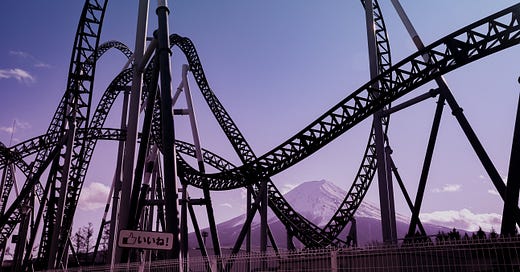Every so often I start to think that maybe I’m actually pretty good at a thing, like teaching or coaching or writing books. I feel competent. And then, I don’t. It’s not because I have imposter syndrome, or the thing got harder, or I don’t know how to acknowledge my skills. Maybe it’s that competence is a non-linear j…
Keep reading with a 7-day free trial
Subscribe to Perfectly Cromulent to keep reading this post and get 7 days of free access to the full post archives.




